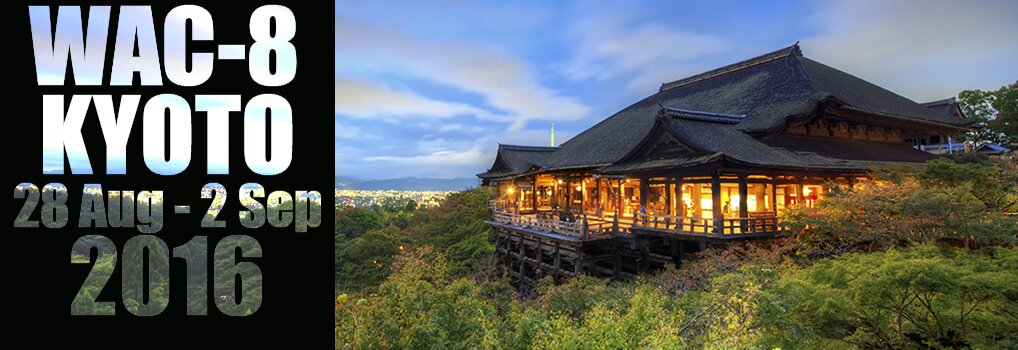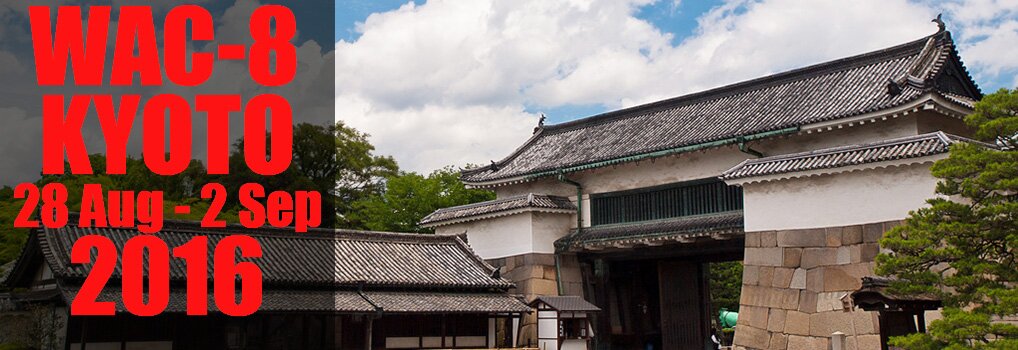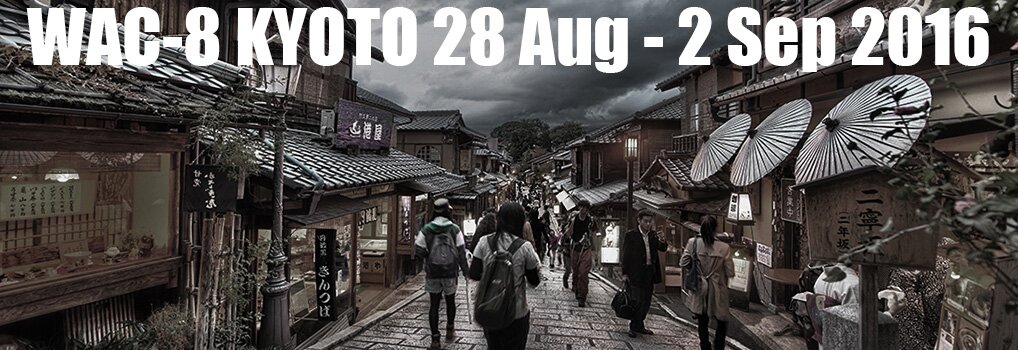Message from the President
As the President of the World Archaeological Congress, and as a Japanese archaeologist, I am extremely pleased and honored that our next congress will be held in Kyoto. The fact that the year 2016 will mark the 30th anniversary of the founding of the World Archaeological Congress enhances the senses of excitement and expectation.
Those thirty years have seen many profound changes in the way we live our lives and do archaeologies. Continuing liquefaction and fragmentation of our life-worlds, accelerated by the development of digital communication and globalisation, have brought us both unprecedented opportunities and risks. We now can instantly share our experiences and mutually comment on and discuss them, as long as we have access to various digital communication media. However, this situation also generates the sense of information overload and leads to heightened senses of anxiety and fear. Enhanced velocity in shifting capital and infrastructural investment accelerates the pace of the destruction of locally unique ways of life, increases the incident of Indigenous rights infringement, and widens gaps between the haves and have-nots, fuelling discriminations and extremisms.
Retrospectively, the WAC was born at the threshold marking the irreversible start of those trends; the WAC was born to do something good to such a changing world through archaeologies, by taking advantage of what those trends enabled us to do and by countering problems caused by those trends. What members of the WAC have been doing in those years resonate with some characteristic features of WAC-8 Kyoto 2016. WAC-8 Kyoto 2016 is the first full WAC Congress held in East Asia. It is also the first in non-Western language-speaking countries. Japan enjoyed unprecedented economic success benefitted by the positive elements of industrialization and globalisation, and now is suffering from negative consequences of the economic success: the negligence of risks generated by it, and the ignorance of its past, including its imperial expansion and the forceful assimilation of the Ainu and other minority groups. And Japan also recently experienced one of the worst natural disasters in the Modern Era in the form of the Great East Japan Earthquake, Tsunami, and the Fukushima Dai-ichi Nuclear Power Plant Disaster.
In order to share our experiences of doing archaeologies in different parts of the world and discuss how to solve problems that the world is suffering from, we have to overcome language barriers and various differences, i.e., economic, social, cultural, and political, generated through different trajectories we have been through in Modernity, and try to create an ‘ideal speech situation’. We archaeologists have to put our knowledge and experiences together to prepare ourselves for unavoidable natural disasters and their avoidable consequences caused by our ignorance. Kyoto, Japan is uniquely suited for discussing those issues and trying to achieve certain goals. And, Kyoto itself, as a historic city, has also been through times of prosperity, natural disasters, wars, diseases, and was resurrected at each and every time.
I am looking forward to meeting colleagues from all over the world at the end of the summer next year in Kyoto, sharing our knowledge and experiences, and celebrating together being archaeologists and doing archaeologies today.

Koji Mizoguchi
The President of the World Archaeological Congress








